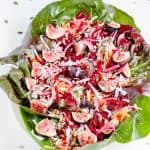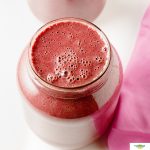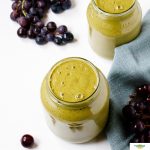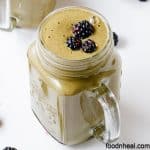Cannabis and hemp are two varieties of the Cannabis sativa plant, yet they serve distinct purposes in cooking and wellness. The key difference lies in their chemical makeup. Cannabis contains higher levels of THC, which gives it psychoactive effects and is used as a medical cannabinoid, while hemp has minimal THC and is prized for its nutritional content.

As a nutritionist, I frequently receive inquiries about natural remedies to manage inflammation, alleviate pain, and enhance overall well-being, particularly from individuals coping with chronic health issues. A recurring question involves understanding the difference between hemp and cannabis, as well as their culinary applications.
This article thoroughly examines the comparison between these two plants, outlines their potential health benefits, and discusses practical ways to incorporate them into meals. While nutrition is a fundamental component of healing, many people are increasingly turning to CBD, hemp seeds, and cannabis-infused foods as supplementary options.
Cannabis vs. Hemp: Definitions and Legal Considerations
Cannabis is widely recognized for its psychoactive properties, primarily due to the compound tetrahydrocannabinol (THC). Hemp, on the other hand, contains very low levels of THC. The key difference lies in their chemical composition, influencing how each plant is used. Legal regulations also play a role, as many states have strict guidelines that distinguish hemp from cannabis. These regulations affect everything from cultivation to product distribution, making it essential for consumers to understand their use.
The variation in THC levels means that cannabis is more commonly associated with recreational and medicinal uses, while hemp is often preferred for products that require minimal psychoactive effects. This distinction is crucial for cooks and wellness enthusiasts, as it influences dosage, preparation methods, and overall product safety.
Cooking Applications
Cannabis in the Kitchen
Cooking with cannabis involves using the plant’s potent compounds to create infused oils, butter, and edibles. Chefs usually start with decarboxylation—a process that activates cannabinoids—to ensure that the desired effects come through in the final dish. Recipes are carefully crafted, balancing flavors with accurate dosing, essential for a consistent experience.
One potential downside is that it may be more difficult to source your own raw material (ie. cannabis flower), which is why many people prefer to consume pre-made gummies and cereal bars.
Hemp’s Culinary Role
Hemp’s nutritional benefits make it a popular choice for everyday cooking. Hemp seeds, oil, and protein powder are common ingredients in smoothies, salads, and baked goods. These products boost essential fatty acids, protein, and fiber without altering the dish's flavor. Health enthusiasts appreciate hemp's ability to add nutrition while keeping meals light and balanced.
Health Benefits of Cannabis
In the realm of health, cannabis is used to help manage chronic pain, anxiety, and sleep issues. Its interaction with the body’s endocannabinoid system can aid in regulating mood and discomfort. Consumers can choose from tinctures, edibles, and topical applications based on their needs. Although many report benefits, it is essential to use cannabis responsibly and under proper guidance.
Hemp Benefits
Hemp is celebrated in the wellness community for its natural and non-intoxicating properties. Due to its moisturizing qualities, hemp seed oil is often found in skincare products, and hemp protein is a favored supplement among those following plant-based diets. The essential fatty acids in hemp oil support heart health and reduce inflammation. This straightforward nutritional boost makes hemp a reliable ingredient in both food and personal care routines.
Making the Right Choice
When considering cannabis or hemp, the choice largely depends on your goals. If you are looking to explore culinary experimentation with psychoactive effects or targeted pain relief, cannabis might suit your needs, provided you adhere to local regulations and dosage guidelines. On the other hand, if you prefer nutritional benefits without any intoxicating effects, hemp is a more practical option.
For those interested in both cooking and pain relief, combining these plants into your lifestyle requires careful thought. Balancing flavor, nutrition, and desired effects can help you create a routine that supports your overall well-being. Awareness of dosage and quality is essential in both cases.
Conclusion
Cannabis and hemp, though stemming from the same species, offer unique benefits in cooking and wellness. Cannabis provides opportunities for culinary creativity and targeted symptom relief when prepared with care. Hemp delivers a nutritional boost that complements a balanced diet and supports everyday health.
Understanding these differences helps you make informed choices based on your personal needs and lifestyle. Whether you lean toward the culinary versatility of cannabis or the healthful advantages of hemp, both plants can contribute positively to your cooking and wellness practices.
The power to heal, Githu


















Comments
No Comments